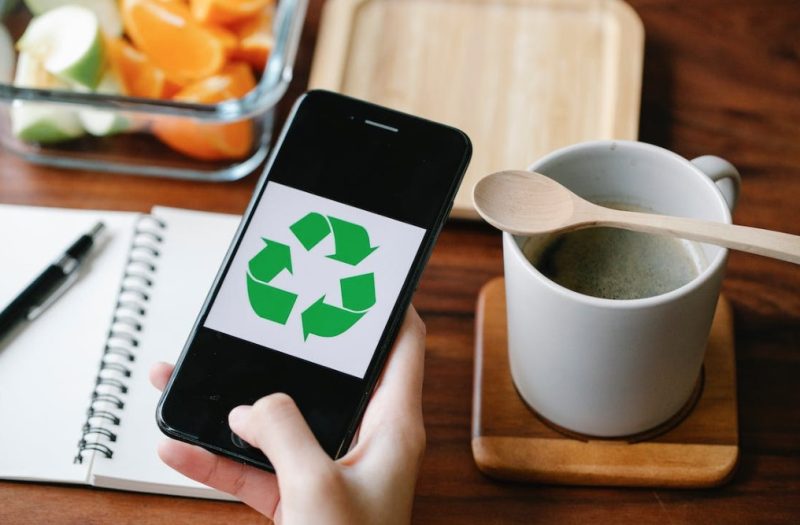
With growing awareness of environmental issues, the problem of electronic waste, or e-waste, has gained prominence. As technological advancements accelerate, electronic devices are becoming obsolete more quickly, leading to an increase in e-waste. This scenario presents a unique challenge and opportunity for college students, who are often at the intersection of high-tech device usage and environmental activism.
For students immersed in college life, balancing studies, assignments, and extracurricular activities, understanding and addressing the issue of e-waste can seem daunting. Yet, it’s a critical aspect of sustainability that can’t be overlooked. Students looking to delve into this topic for their academic assignments might find themselves in need of a 3 page essay writer from DoMyEssay, especially when exploring the complexities of e-waste management and sustainability practices.
Understanding E-Waste and Its Impact
E-waste, comprising discarded electronic devices like smartphones, laptops, and tablets, is a growing environmental concern. Common electronic devices, essential in our daily lives, contain harmful substances such as cadmium, mercury, and lead. When these devices are not disposed of correctly, they pose significant risks to both the environment and human health.
In the U.S., the daily disposal rate of computers alone exceeds 112,000 units, contributing to air pollution and soil and water contamination. The impact of e-waste is extensive, disrupting ecological balance and presenting health hazards through the release of toxic materials into our surroundings.
The Role of College Students in E-Waste Management
Awareness and Education
College campuses are essential for raising e-waste awareness. Educational institutions across the U.S. are developing programs to enlighten students about the components of electronic devices and the importance of recycling them. Initiatives like “What’s In Our Electronics?” provide valuable learning opportunities for students to understand the materials used in electronics and the critical need for recycling.
By educating the youth, particularly college students, schools can create a ripple effect, inspiring more responsible e-waste disposal practices within communities.
Participation in Recycling Programs
Universities play a pivotal role in e-waste management. Many, such as the University of San Diego, have found innovative solutions, like establishing the Electronics Recycling Center (ERC), which has successfully collected and recycled a significant volume of electronic waste.
On-campus programs focusing on battery and e-waste recycling, like those spearheaded by Call2Recycle®, are crucial. They help divert hazardous waste from landfills and promote environmentally responsible practices among the student body.
Product Stewardship and Zero-Waste Goals
Embracing product stewardship, where manufacturers take responsibility for the disposal of their products, is gaining traction as an effective e-waste management strategy. This approach alleviates the disposal burden from consumers and ensures a sustainable end-of-life for electronic products.
Universities such as the University of Louisville actively participate in recycling initiatives, setting an example in achieving zero-waste goals and fostering a culture of sustainability on campus.
Innovative Recycling Initiatives
Events like RecycleMania motivate students to engage in e-waste recycling through creative and competitive activities. Such events increase awareness and incentivize students to participate actively in recycling efforts, making a tangible impact on campus sustainability.
The Power of Individual Action
College students, well-versed in technology and digital tools, are in a unique position to lead e-waste management initiatives. By being informed, proactive, and engaged, they can significantly influence the reduction of e-waste. Actions such as participating in campus recycling drives, advocating for sustainable practices, and making eco-friendly choices in consuming and disposing of electronic devices are vital steps toward minimizing e-waste. These individual actions, when multiplied across campuses, can lead to substantial environmental benefits.
Harnessing Digital Innovation for E-Waste Solutions
In the digital age, innovation plays a crucial role in addressing environmental challenges like e-waste. As college students are inherently intertwined with digital technologies, they are uniquely positioned to leverage these innovations for sustainable e-waste management.
Digital Platforms for E-Waste Awareness and Action
The rise of social media and digital platforms presents an opportunity for students to create and engage in online campaigns aimed at raising awareness about e-waste. These platforms can be used to share educational content, organize virtual events, and mobilize peers for collective action.
Apps and websites dedicated to e-waste management offer a convenient way for students to locate nearby recycling centers, schedule pick-ups for e-waste, and even track the environmental impact of their recycling efforts.
Innovative Apps and Tools for E-Waste Reduction
Students can leverage various apps that encourage sustainable consumption patterns, such as those that facilitate the buying and selling of used electronics. This not only prolongs the life of devices but also reduces the demand for new products, thereby mitigating e-waste generation.
Digital tools that provide information on the repairability and lifespan of products can aid students in making more informed purchasing decisions, opting for devices that are durable and easier to recycle.
Conclusion
The challenge of e-waste is vast, but so is the opportunity for positive change. College students, with their heightened environmental awareness and access to educational resources, can be powerful agents of change in promoting sustainable practices and reducing e-waste. By actively participating as environmental protectors, students have the opportunity to make a substantial impact on creating a more sustainable future.
For those interested in exploring this topic further in their academic work, resources like the best paper writing service can be invaluable in crafting well-researched and insightful papers.

Taylor is a freelance SEO copywriter and blogger. His areas of expertise include technology, pop culture, and marketing.













